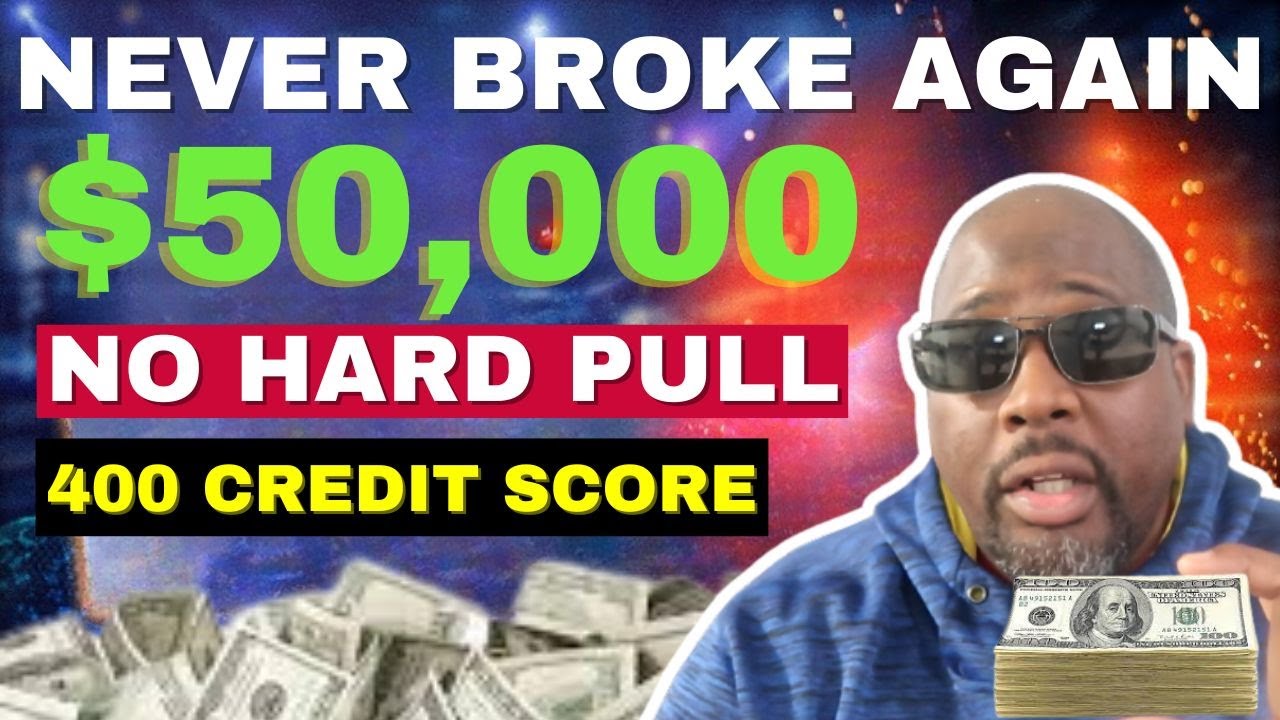Bad Credit Loans: Get the Financing You Need
Having a poor credit score can be a significant obstacle when seeking financing. Many individuals with less-than-perfect credit histories face challenges in securing loans from traditional lenders.
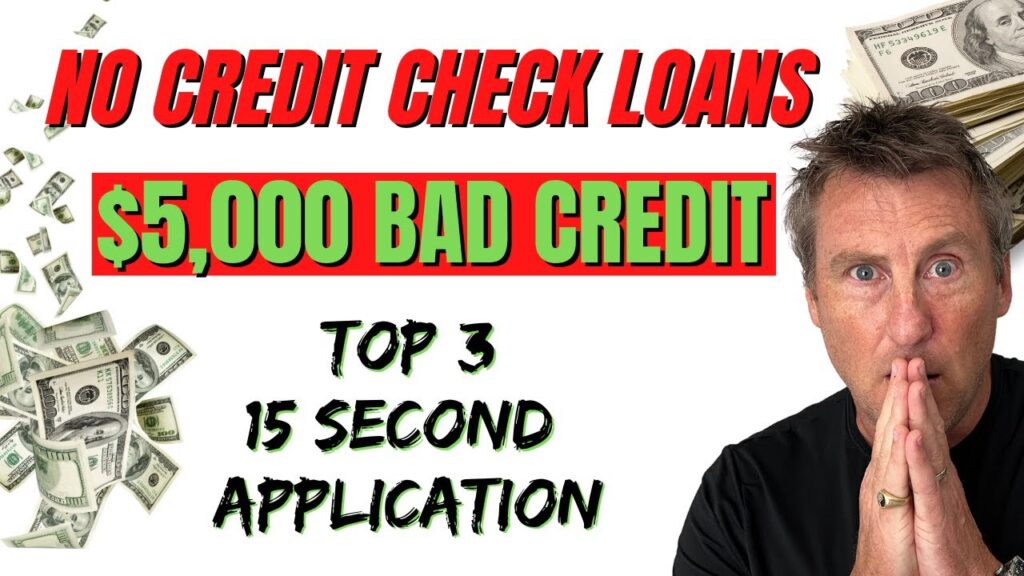
That’s where bad credit loans come in – financial products designed for borrowers with poor credit. These loans provide an opportunity for individuals to access financing despite their credit challenges.
We will guide you through the process of understanding, comparing, and selecting the right bad credit loan options. Our goal is to provide unbiased, professional guidance to help you make informed financial decisions.
Key Takeaways
- Bad credit loans are designed for individuals with poor credit histories.
- These loans provide an opportunity to access financing despite credit challenges.
- Understanding loan terms, interest rates, and fees is crucial.
- Various lenders offer bad credit loans with different qualification requirements.
- We provide unbiased guidance to help you make informed financial decisions.
Understanding Bad Credit Loans
Navigating the world of bad credit loans requires a thorough understanding of credit scores and their impact on loan eligibility. Bad credit loans are designed for individuals with poor credit history, but the terms and conditions of these loans can vary significantly depending on the lender and the borrower’s credit score.
What Defines a Bad Credit Score?
A bad credit score typically falls within the range of 300 to 579, according to the FICO scoring model, which ranges from 300 to 850. Several factors contribute to a low credit score, including a history of missed payments, high credit utilization, a short credit history, and recent credit inquiries.
For instance, missing a payment can significantly lower one’s credit score because it indicates a higher risk to lenders. Similarly, having a high debt-to-income ratio or being a victim of identity theft can also negatively affect one’s credit score.
How Bad Credit Affects Loan Eligibility
Having a bad credit score can substantially impact one’s ability to secure a loan. Lenders view borrowers with poor credit as higher risks, which often results in higher interest rates and stricter loan terms.
| Credit Score Range | Loan Eligibility | Interest Rate |
|---|---|---|
| 300-579 | Limited options, stricter terms | Higher interest rates |
| 580-669 | Moderate options, competitive rates | Moderate interest rates |
| 670-850 | Better options, favorable terms | Lower interest rates |
Lenders assess the risk associated with lending to borrowers with poor credit by examining their credit history, income, and other financial factors. As a result, borrowers with bad credit may face higher APR rates, limited borrowing options, and stricter repayment terms.
Types of Bad Credit Loans
Navigating the world of bad credit loans can be daunting, but knowing the options can help you choose the best fit for your financial situation.
Secured Loans
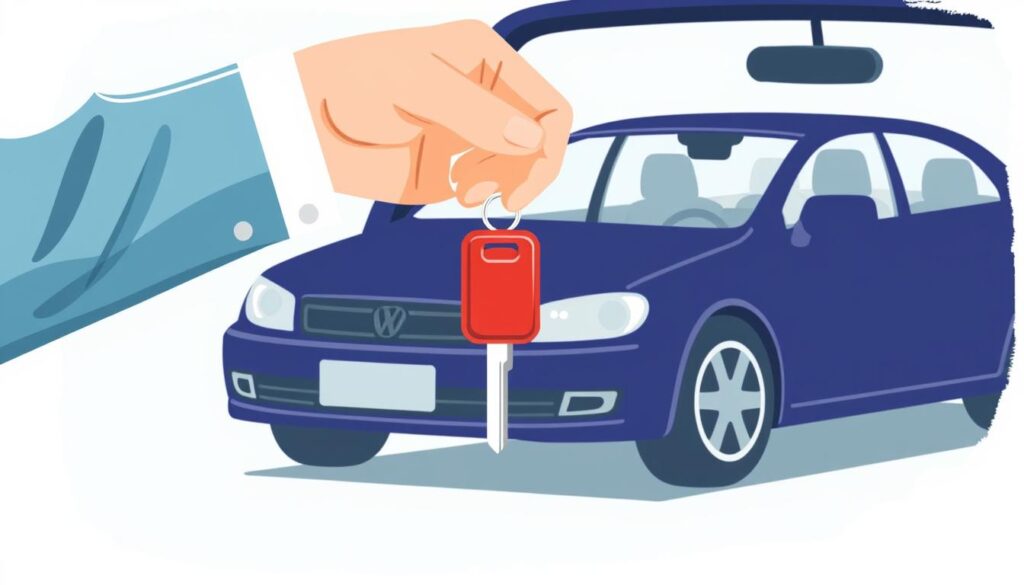
Secured loans require collateral, such as a car or home, making them easier to obtain with better interest rates since lenders have less risk. The types of collateral accepted can vary, but typically include valuable assets like vehicles or property. If payments aren’t made, there’s a risk of asset forfeiture.
Benefits: Better interest rates, larger loan amounts. Risks: Asset forfeiture if payments are missed.
Unsecured Loans

Unsecured loans rely on credit history, income, and debt. These loans are riskier for lenders, so they often come with higher interest rates and stricter qualification requirements. Borrowers with bad credit may still qualify but should be prepared for less favorable terms.
Benefits: No risk of asset forfeiture. Drawbacks: Higher interest rates, stricter requirements.
Joint Personal Loans

Joint personal loans allow you to apply with a second person, potentially leveraging their stronger credit profile to secure better loan terms. This can be particularly helpful for individuals with poor credit.
Advantages: Better loan terms, higher approval rates. Considerations: Both applicants are equally responsible for the loan.
Payday Loans and Cash Advances
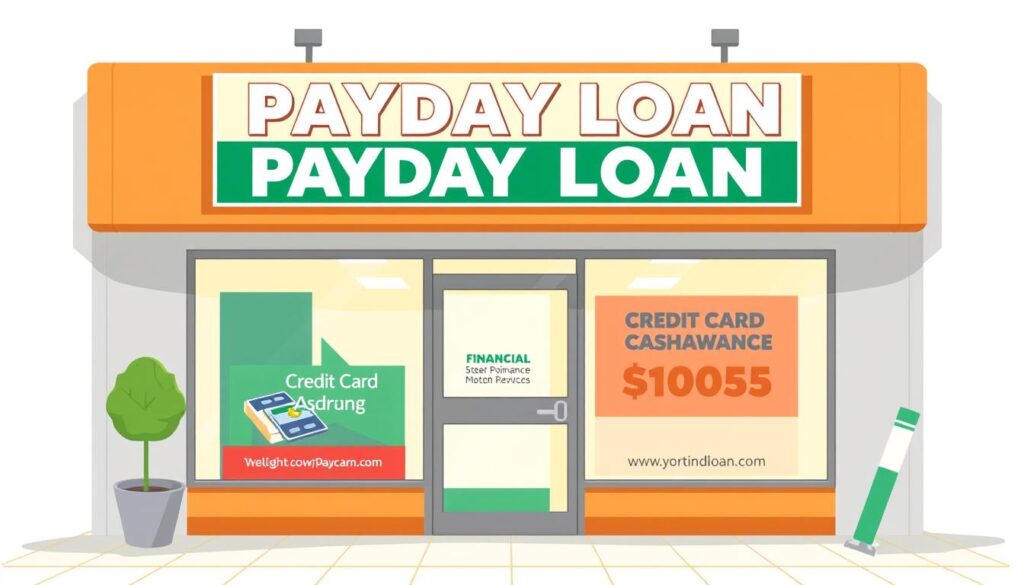
Payday loans and cash advances are short-term solutions with extremely high fees, sometimes up to 400% APR. While they don’t require credit checks, they can lead to debt cycles due to their high costs.
Warning: High fees and APRs can lead to debt traps. Consider alternatives before opting for these loans.
Understanding the different types of bad credit loans can help you make an informed decision that suits your financial situation. It’s crucial to weigh the pros and cons of each loan type carefully.
How to Qualify for Bad Credit Loans
Understanding the qualification criteria for bad credit loans can help borrowers prepare and potentially improve their eligibility. Lenders consider various factors when evaluating loan applications from individuals with poor credit history.
Minimum Credit Score Requirements
Different lenders have varying minimum credit score requirements for bad credit loans. Some lenders specialize in offering loans to individuals with very poor credit, while others may have stricter criteria.
| Lender | Minimum Credit Score |
|---|---|
| Upstart | 300 |
| Avant | 580 |
| Prosper | 560 |
| Upgrade | 580 |
| Best Egg | 580 |
| LendingClub | 600 |
| Happy Money | 640 |
As shown in the table, the minimum credit score requirements vary significantly among lenders. For instance, Upstart has a relatively low minimum credit score of 300, while Happy Money requires a score of at least 640.
Income and Employment Verification
Lenders typically verify income and employment to assess the borrower’s ability to repay the loan. This process involves providing documentation such as pay stubs, tax documents, or direct employer contact.
Employment requirements often include minimum income thresholds and employment stability factors. Lenders may consider the length of employment, job history, and income level when evaluating loan applications.

To strengthen a loan application, borrowers should be prepared to provide comprehensive income and employment information. Some lenders may also consider alternative factors beyond traditional credit scores, such as education or banking behavior.
By understanding these qualification criteria, borrowers can better navigate the process of applying for bad credit loans and potentially improve their chances of approval.
I Want a Professional Article for Bad Credit Loans: Top Lenders Reviewed
The process of selecting the right bad credit loan lender can be daunting, but we’re here to guide you through it. With so many lenders offering varying terms and conditions, it’s essential to have a clear understanding of what to look for.
How We Selected These Lenders
Our selection process involved a comprehensive evaluation of numerous lenders, focusing on their credit score requirements, loan terms, and interest rates. We considered lenders that offer a range of loan amounts and have flexible repayment terms. Our goal was to identify lenders that not only cater to individuals with bad credit but also provide competitive and transparent loan offers.
We assessed lenders based on their reputation, customer service, and transparency in their lending practices. This included evaluating their origination fees, APR ranges, and any additional features such as hardship programs or rate discounts. By considering these factors, we aimed to provide a list of lenders that are not only reliable but also offer the best possible terms for borrowers with bad credit.
What to Look for in Bad Credit Loan Offers
When comparing bad credit loan offers, several key factors should be considered to ensure you secure the best possible deal. First, examine the APR and origination fees associated with the loan, as these can significantly impact the total cost. Additionally, consider the loan term and repayment conditions to ensure they align with your financial situation.
It’s also crucial to assess the lender’s customer service and reputation. Look for lenders that offer clear and transparent communication about their loan products and terms. Furthermore, consider any additional features that may be beneficial, such as the ability to co-sign a loan or access to credit monitoring tools.
By carefully evaluating these aspects, you can make an informed decision and choose a personal loan that meets your needs while minimizing potential risks.
Upstart: Best Overall for Bad Credit
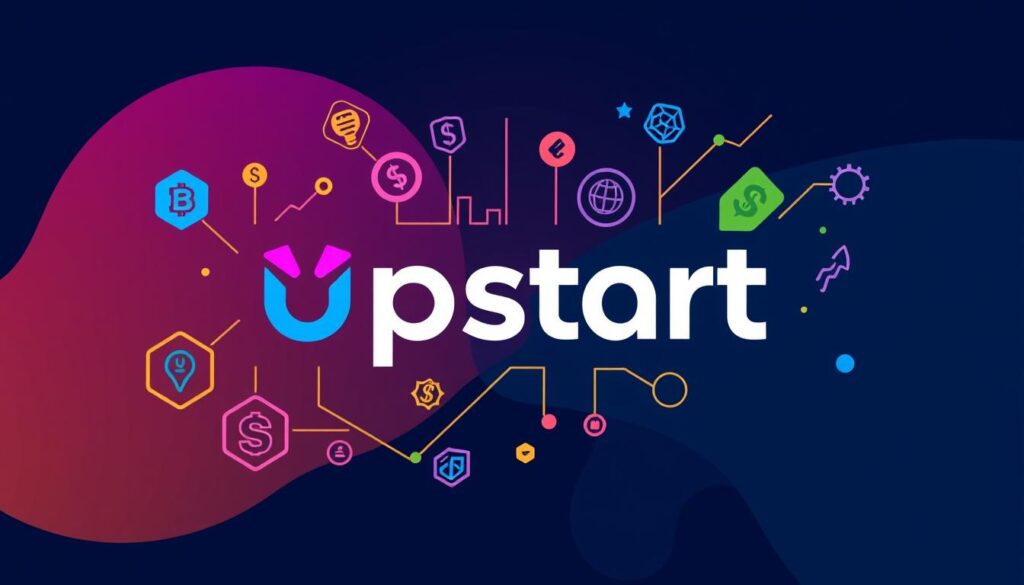
Upstart is revolutionizing the lending landscape with its innovative approach to bad credit loans. By leveraging AI-driven technology, Upstart considers a broader range of factors beyond traditional credit scores, making it an attractive option for borrowers with less-than-perfect credit.
Overview
Upstart’s lending platform connects borrowers with a network of banks and credit unions, offering a more inclusive approach to lending. With a minimum credit score requirement of just 300, Upstart is more accessible to those who might be rejected by traditional lenders. This innovative lender provides loan amounts ranging from $1,000 to $50,000, with terms of either 36 or 60 months.
Pros
Low Minimum Credit Score: Upstart’s acceptance of credit scores as low as 300 makes it a viable option for those with bad credit. Fast Funding: 99% of loans are funded by the next business day, providing quick access to cash when needed.
Cons
Limited Repayment Terms: Borrowers are limited to 36 or 60-month repayment terms, which may not be as flexible as some borrowers need. Origination Fees: Upstart charges origination fees ranging from 0% to 12%, which can increase the total cost of the loan.
Loan Requirements and Features
To qualify for an Upstart loan, applicants must be at least 18 years old, have a U.S. address, a personal bank account, and an annual income of $12,000 or more. Upstart also considers factors such as education and employment history in its lending decisions, making it a more holistic approach to creditworthiness. The APR for Upstart loans ranges from 6.70% to 35.99%, depending on the borrower’s credit profile and loan terms.
Upstart’s loan offerings are designed to be more inclusive, providing an opportunity for individuals with bad credit to access necessary funds. By understanding the pros and cons, as well as the specific requirements and features of Upstart loans, borrowers can make informed decisions about their financial options.
Avant: Best for Quick Funding
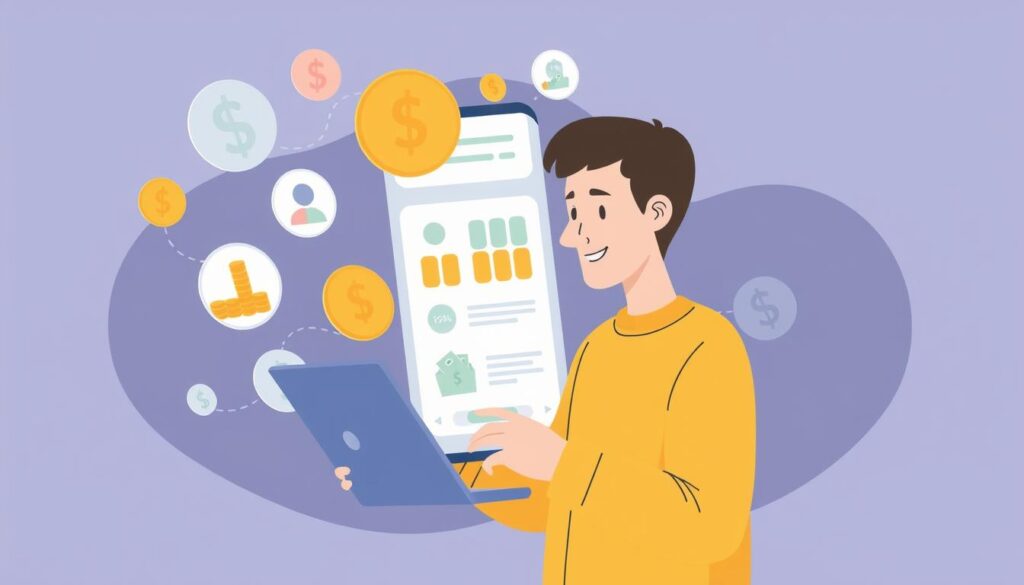
For borrowers needing quick access to funds, Avant stands out as a top choice. Avant is an online lender that specializes in providing personal loans to individuals with bad credit, offering a range of benefits that make it an attractive option.
Overview
Avant is known for its quick funding capability, often disbursing funds within one business day after approval. This makes it an ideal choice for borrowers who need to address urgent financial needs. With a minimum credit score requirement of 550, Avant is accessible to a wide range of borrowers.
Avant’s loan products are characterized by loan amounts ranging from $2,000 to $35,000, with repayment terms spanning 24 to 60 months. The APR ranges from 9.95% to 35.99%, and there is an origination fee of up to 9.99%.
Pros
Quick Funding: Avant’s ability to disburse funds quickly is a significant advantage for borrowers in need of urgent financial assistance.
Moderate Credit Score Requirements: With a minimum credit score requirement of 550, Avant is more accessible than lenders with stricter credit requirements.
Flexible Repayment Terms: Avant offers repayment terms of 24 to 60 months, allowing borrowers to choose a plan that fits their financial situation.
Cons
Higher Interest Rates: Avant’s APR can be as high as 35.99%, which may be higher than some competitors.
Origination Fee: The origination fee of up to 9.99% can add to the overall cost of the loan.
Loan Requirements and Features
To qualify for an Avant loan, borrowers must meet certain eligibility criteria, including a minimum credit score of 550 and income verification. Avant’s loan amounts range from $2,000 to $35,000, with terms of 24 to 60 months.
One of the notable features of Avant is its 10-day grace period for late payments, during which no late fees are charged. However, Avant is not available in all states, including Hawaii, Iowa, Maine, Massachusetts, New York, Vermont, Washington, and West Virginia.
Prosper: Best for Peer-to-Peer Lending

In the realm of peer-to-peer lending, Prosper has emerged as a top choice for borrowers, especially those with less-than-perfect credit. Prosper is an online platform that connects borrowers with individual investors, offering a unique alternative to traditional lending institutions.
Overview
Prosper offers a range of loan options with competitive interest rates and flexible repayment terms. With a minimum credit score requirement of 560, it provides opportunities for borrowers with bad credit to secure loans.
Pros
Relatively low minimum credit score: Prosper accepts credit scores as low as 560, making it more accessible to borrowers with bad credit.
Hardship relief program: Prosper offers a hardship relief program to help borrowers facing financial difficulties.
Potential rate discounts: Borrowers can receive a discount on their interest rate by opening a Teachers Federal Credit Union account.
Cons
Multi-step funding process: The funding process can be lengthy, taking up to 3 days.
Origination fees: Prosper charges origination fees ranging from 1.00% to 9.99%, which can increase the loan’s overall cost.
Loan Requirements and Features
Prosper offers loan amounts ranging from $2,000 to $50,000 with repayment terms of 24 to 60 months. The APR ranges from 8.99% to 35.99%, depending on the borrower’s credit profile. To qualify, borrowers must be at least 18 years old, a U.S. citizen, have a U.S. bank account, and not reside in Iowa or West Virginia.
Prosper’s peer-to-peer lending model allows for competitive interest rates and more flexible terms compared to some traditional lenders. However, borrowers should be aware of the potential drawbacks, including the origination fee and the time it takes to receive funding.
Upgrade: Best for Longer Repayment Terms

Upgrade is our top recommendation for those looking for longer loan repayment terms. With Upgrade, borrowers can enjoy repayment terms of up to 84 months, making it easier to manage monthly payments.
Overview
Upgrade offers personal loans with flexible repayment terms, making it an ideal choice for borrowers who need more time to repay their loans. The lender provides loan amounts ranging from $1,000 to $50,000, with APRs between 7.99% and 35.99%, depending on the borrower’s credit score and other factors.
Pros
Long repayment terms of up to 84 months can significantly lower monthly payments, making it more manageable for borrowers. Upgrade also offers APR discounts for autopay, debt consolidation, and secured loans, which can help reduce the overall cost of the loan.
Cons
While Upgrade offers several benefits, it’s essential to consider the potential downsides. The lender charges an origination fee ranging from 1.85% to 9.99%, which can add to the upfront cost of the loan. Additionally, late or failed payment penalties may apply.
Loan Requirements and Features
To qualify for an Upgrade loan, borrowers must meet certain requirements, including being at least 18 years old (19 in some states), being a U.S. citizen or permanent resident, and having a valid bank account and email address. Upgrade’s minimum credit score requirement is 580, making it accessible to borrowers with bad credit. The lender typically funds loans within one business day after approval.
It’s crucial to understand that while longer repayment terms can result in lower monthly payments, they may also lead to higher total interest costs over the life of the loan. Borrowers should carefully consider their financial situation and loan terms before making a decision.
Best Egg: Best for Secured Loan Options

Best Egg is our top pick for secured loans, thanks to its innovative use of home fixtures as collateral. This approach provides a unique solution for borrowers with bad credit.
Overview
Best Egg offers secured personal loans that use home fixtures as collateral, making it an attractive option for borrowers with poor credit history. This lender provides a range of loan amounts from $2,000 to $50,000, with terms spanning 36 to 84 months.
Pros
Flexible Collateral Options: Best Egg allows borrowers to use home fixtures as collateral, increasing approval odds for those with bad credit. Competitive APR: The lender offers APRs ranging from 7.99% to 35.99%. Payment Postponement: Borrowers can postpone up to two payments over the loan’s lifetime.
Cons
Geographic Limitations: Best Egg’s services are not available in DC, Iowa, Vermont, West Virginia, or U.S. territories. Origination Fee: The lender charges an origination fee between 0.99% and 9.99%.
Loan Requirements and Features
To qualify for a Best Egg secured loan, borrowers must meet certain requirements, including being a U.S. citizen or permanent resident, having a personal checking account, a valid email address, and a physical address. The minimum credit score required is 580. Best Egg provides funding within 1-3 business days, making it a relatively quick option for those in need of financial assistance.
Best Egg’s secured loan options are designed to provide borrowers with bad credit a chance to secure financing by using home fixtures as collateral. With competitive APRs and flexible repayment terms, Best Egg is a viable option for those looking to consolidate debt or cover unexpected expenses.
LendingClub: Best for Co-Borrower Options

When it comes to co-borrower personal loans, LendingClub is our top recommendation. LendingClub is an online digital bank that connects borrowers with investors, offering joint personal loans that allow co-borrowers.
Overview
LendingClub’s co-borrower option is particularly beneficial for individuals with bad credit, as it allows them to apply with a co-signer who has a stronger credit profile. This can lead to more favorable loan terms, including lower interest rates and higher loan amounts.
Pros
Improved loan terms are a significant advantage when applying with a co-borrower. LendingClub’s platform is also known for its relatively quick funding timeline, with most loans being funded within 24 hours of approval.
Cons
One potential drawback is LendingClub’s minimum credit score requirement of 600, which may be higher than some competitors. Additionally, the origination fee can range from 0.00% to 8.00%, which may impact the overall cost of the loan.
Loan Requirements and Features
LendingClub offers personal loans with APRs ranging from 7.90% to 35.99%. The loan amounts range from $1,000 to $40,000, with repayment terms of 24 to 72 months. To be eligible, applicants must be at least 18 years old, a U.S. citizen or permanent resident, and have a verifiable bank account.
LendingClub’s co-borrower option can be particularly beneficial for those with bad credit, as the lender considers both the primary borrower’s and co-borrower’s credit scores during the application process.
Happy Money: Best for Credit Card Debt Consolidation

Happy Money is our top recommendation for credit card debt consolidation due to its focus on financial wellness and moderate loan terms. It offers personal loans specifically designed for consolidating credit card debt, with a range of benefits that make it an attractive option for borrowers.
Loan Overview
Happy Money’s debt consolidation loans offer several advantages, including competitive APRs ranging from 8.95% to 17.48%, which is lower than many competitors’ maximum rates. Loan amounts range from $5,000 to $40,000, with terms spanning 24 to 60 months.
Pros
Competitive Interest Rates: Happy Money’s APR range is competitive, potentially saving borrowers money on interest.
Moderate Origination Fees: The origination fee ranges from 1.50% to 5.50%, which is moderate compared to other lenders.
Focus on Financial Wellness: Happy Money emphasizes improving financial wellness, not just providing loans.
Cons
Slower Funding Timeline: Funding takes 3-6 business days, which is slower than some competitors.
Higher Minimum Credit Score: The minimum credit score requirement is 640, which may be challenging for some borrowers.
Loan Requirements and Features
To qualify for a Happy Money loan, applicants must be at least 18 years old, have a valid SSN, a checking account, and not reside in Iowa, Massachusetts, or Nevada. Additionally, they must have zero current delinquencies. The loan amounts range from $5,000 to $40,000, with repayment terms of 24 to 60 months.
By consolidating credit card debt with Happy Money, borrowers can potentially save on interest and simplify their financial obligations. It’s essential to review the loan terms and ensure they align with your financial goals.
How to Apply for Bad Credit Loans
Applying for a bad credit loan can seem daunting, but understanding the process can make it more manageable. We will guide you through the necessary steps and documentation required to successfully apply for a bad credit loan.
Required Documentation
To apply for a bad credit loan, you’ll need to provide certain documents to verify your identity, income, and residence. Typically, lenders require ID, proof of address, proof of income (such as pay stubs or tax documents), and information about your recurring monthly debt payments. Having these documents ready can streamline the application process and improve your chances of approval.
Organizing your financial information before applying is crucial. This includes gathering all necessary documents and ensuring you have a clear picture of your financial situation. By doing so, you can avoid common application mistakes that could lead to denial.

Pre-Qualification Process
The pre-qualification process allows you to check potential loan rates without affecting your credit score through a soft credit inquiry. This step is crucial as it gives you an idea of the loan terms you might qualify for without committing to a full application.
During pre-qualification, lenders typically review basic financial information to provide an estimate of the loan amount and interest rate you might qualify for. This process is beneficial for comparing multiple loan offers and ensuring you get the best possible terms. It’s a risk-free way to explore your loan options and plan your next steps.
By understanding the pre-qualification process and required documentation, you can navigate the bad credit loan application process more effectively. This knowledge empowers you to make informed decisions and potentially secure the financing you need.
Understanding Loan Terms and Costs
The true cost of a bad credit loan extends beyond the borrowed amount, encompassing various fees and interest rates. To make an informed decision, it’s essential to comprehend the different components that contribute to the overall cost of the loan. This understanding will help borrowers navigate the complex landscape of bad credit loans.
Interest Rates and APR
Interest rates for bad credit loans can range from 6.70% to 35.99% APR, significantly impacting the total amount repaid. The Annual Percentage Rate (APR) includes not only the interest rate but also other fees associated with the loan, providing a comprehensive view of the loan’s cost. Understanding the difference between the interest rate and APR is crucial for borrowers.
The APR gives a more accurate representation of the loan’s cost, as it factors in origination fees and other charges. This allows borrowers to compare loan offers more effectively.
Origination Fees and Other Charges
Origination fees for bad credit loans can range from 0% to 12% of the loan amount, deducted from the loan proceeds. This means that borrowers receive less than the amount they applied for. For instance, a 5% origination fee on a $10,000 loan results in the borrower receiving $9,500.
Other potential charges include late payment fees, ranging from $15 to $30, returned payment fees, and application fees. These charges can significantly increase the total cost of the loan if not managed properly.
Repayment Terms and Options
Repayment terms for bad credit loans typically range from 24 to 84 months, affecting both monthly payment amounts and the total interest paid. Longer repayment terms result in lower monthly payments but increase the total interest paid over the life of the loan.
Borrowers should carefully consider their financial situation when selecting a repayment term. Some lenders offer repayment options such as autopay discounts and hardship programs, which can help manage loan payments.
Alternatives to Bad Credit Loans
Beyond traditional bad credit loans, there are alternative financing options that could offer more beneficial terms and easier approval processes. We will explore these alternatives to help you make an informed decision about your financial situation.
Credit Union Loans
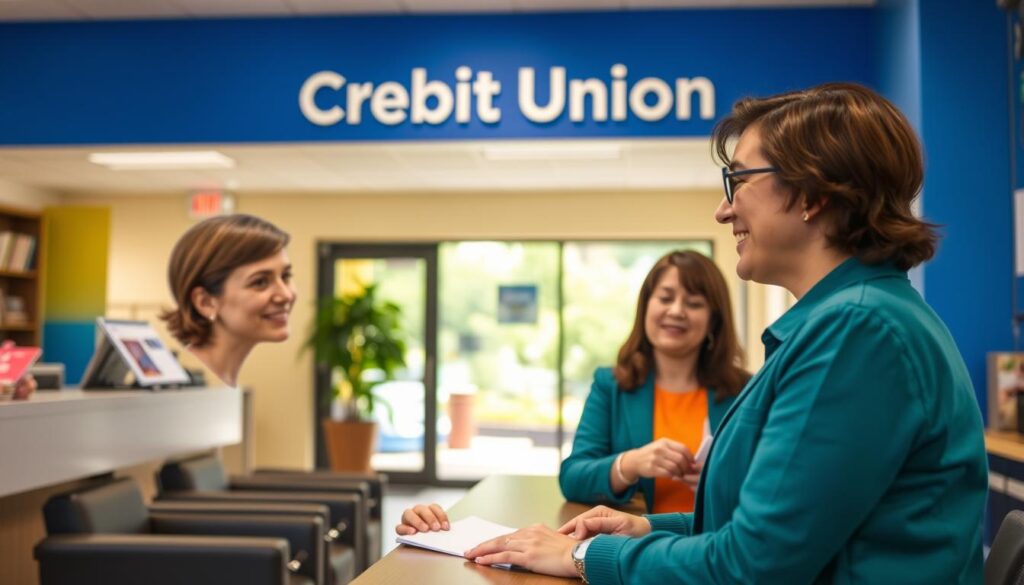
Credit unions often offer more flexible terms and lower rates than traditional banks, especially for members with established relationships. This is because credit unions are non-profit organizations that serve their members rather than seeking to maximize profits.
Benefits of Credit Union Loans: More personalized service, potentially lower interest rates, and more flexible repayment terms.
Home Equity Loans

Home equity loans use your home as collateral, potentially offering lower rates but risking foreclosure if you default. These loans can be a viable option for homeowners with significant equity.
Risks and Benefits: Lower interest rates but with the risk of losing your home if you fail to repay.
Borrowing from Friends or Family
Borrowing from friends or family can avoid interest and credit checks but may strain relationships if repayment issues arise. It’s essential to formalize such arrangements to maintain healthy relationships.
Best Practices: Create a formal agreement, set clear repayment terms, and communicate openly to avoid misunderstandings.
Improving Your Credit Score for Better Loan Options
Improving your credit score is a strategic move towards securing better loan options. A good credit score can make a significant difference in the loan terms you’re offered, potentially saving you thousands of dollars in interest over the life of the loan.
Credit Monitoring Tools

Credit monitoring tools like LendingTree Spring provide free credit score access and alerts, helping you stay on top of your credit health. These services enable you to track changes in your credit report, detect potential identity theft, and receive personalized recommendations for improvement.
Debt Repayment Strategies
Effective debt repayment strategies are crucial for improving your credit score. Two popular methods are the debt snowball and debt avalanche. The debt snowball involves paying off your smallest balances first, while the debt avalanche focuses on eliminating debts with the highest interest rates first.
Choosing the right strategy depends on your financial situation and personal preferences. Both methods can be effective when combined with a commitment to making timely payments.
Building Credit History
Building or rebuilding your credit history can be achieved through several methods, including secured credit cards and credit builder loans. Becoming an authorized user on someone else’s credit account can also be beneficial. Ensuring on-time payments for all your obligations is crucial, as payment history significantly affects your credit score.
By focusing on these strategies and maintaining good credit habits, you can improve your credit score over time, opening up better loan options and more favorable terms.
Conclusion
Bad credit loans can be a lifeline for those facing financial challenges, but it’s crucial to approach them with caution. We’ve explored various lenders and loan options, emphasizing the importance of comparing multiple offers to secure the best possible loan terms. Understanding the associated costs, including interest rates and fees, is vital. By carefully reviewing loan agreements and working to improve your credit score, you can navigate the challenges of bad credit and move towards better financial health.
As you consider your loan options, remember that responsible borrowing practices are key to financial wellness. With consistent effort, you can improve your credit situation and access more favorable loan opportunities in the future.
FAQ
What is the minimum credit score required for a bad credit loan?
We have lenders that offer loans to borrowers with credit scores as low as 580, but some may consider scores as low as 500. The minimum credit score required varies by lender and loan type.
How does a bad credit loan affect my credit score?
Applying for a bad credit loan may result in a hard credit inquiry, which can temporarily lower your credit score. However, making timely payments can help improve your credit score over time.
What are the typical loan amounts and repayment terms for bad credit loans?
Loan amounts can range from $1,000 to $50,000, and repayment terms can vary from 12 to 60 months, depending on the lender and loan type.
Are there any origination fees associated with bad credit loans?
Yes, some lenders charge origination fees, which can range from 1% to 8% of the loan amount. These fees are typically deducted from the loan proceeds.
Can I get a personal loan with a poor credit history?
Yes, we have lenders that specialize in offering personal loans to borrowers with poor credit history. These loans may have higher interest rates or fees.
How long does it take to receive funding after applying for a bad credit loan?
Funding times vary by lender, but some lenders can provide funding as soon as the next business day after approval.
Are bad credit loans secured or unsecured?
Both secured and unsecured loan options are available. Secured loans require collateral, while unsecured loans do not.
Can I use a bad credit loan to consolidate debt?
Yes, many borrowers use bad credit loans to consolidate debt, such as credit card balances, into a single loan with a lower interest rate and a single monthly payment.
What is the average interest rate for a bad credit loan?
Interest rates vary widely depending on the lender, loan type, and borrower’s creditworthiness. Average interest rates can range from 10% to 36% APR.
Do I need a bank account to apply for a bad credit loan?
Yes, most lenders require a bank account to deposit loan proceeds and make automatic payments.

